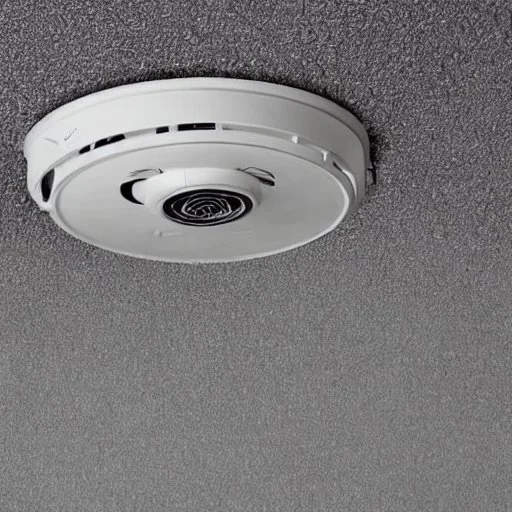July 19, 2025

Smoke alarms are like quiet guardians, tirelessly watching over our homes, alerting us to the presence of danger. They serve as a crucial defense against the devastating effects of fire, providing invaluable moments that can make all the difference between life and death. However, just like any other piece of equipment, smoke alarms have a limited lifespan.
Understanding when to replace them is essential in ensuring optimal safety for ourselves and our loved ones. This article examines the lifespan of smoke alarms and provides valuable insights into recognizing signs that indicate replacement is necessary. By following recommended maintenance practices and understanding the average lifespan of these devices, homeowners can take proactive measures to effectively protect their homes.
Additionally, this article offers guidance on proper installation and testing procedures for smoke alarms. It also highlights the benefits of upgrading to newer models that incorporate advanced technologies for enhanced safety features. Ultimately, by staying informed about the lifespan of smoke alarms and knowing when to replace them, individuals can create a secure environment where they truly belong – a place where protection is paramount.
Regular maintenance of smoke alarms is crucial, mate, to ensure their effectiveness and reliability in detecting fires, ya know? Many homeowners make common maintenance mistakes that can compromise the performance of their smoke alarms, fair dinkum. One such mistake is neglecting to regularly test the alarm by pressing the test button, which ensures that it is functioning properly, ya reckon? Another mistake is failing to clean the alarm from dust and debris, as this can hinder its ability to detect smoke effectively, mate.
Additionally, batteries play a vital role in the lifespan of smoke alarms, you know? It's important to replace them at least once a year or according to the manufacturer's instructions. A low battery can prevent the alarm from sounding when needed most, rendering it useless during a fire emergency, mate.
By avoiding these common maintenance mistakes and regularly replacing batteries, homeowners can enhance the longevity and reliability of their smoke alarms, no worries!
Occasional signs of deterioration, like cracks in the foundation of a house, might suggest that it's time to consider retiring your smoke alarm.
Common issues that indicate the need for replacement include frequent false alarms, dimming or flashing lights, and consistently low battery life.
While troubleshooting steps such as cleaning the smoke alarm and replacing batteries can sometimes fix these issues, persistent problems may require a new unit.
False alarms can be really unsettling and disruptive to one's sense of safety at home. So, it's important to address these concerns promptly by replacing the smoke alarm if troubleshooting doesn't solve the problem.
By doing this, individuals can ensure their fire detection system stays reliable and effective in protecting lives and property from the dangers of smoke and fire.
The lifespan of smoke alarm devices can vary depending on factors like the manufacturer, product quality, and environmental conditions in which they are installed.
It is advised to replace smoke alarms every 10 years to ensure they effectively detect smoke and provide early warning during a fire emergency.
However, there are some common mistakes that people make when it comes to replacing smoke alarms. One mistake is ignoring the expiry date or recommended replacement timeframe provided by the manufacturer.
Another mistake is assuming that a smoke alarm will last indefinitely without regular maintenance or testing.
It is crucial to follow the manufacturer's guidelines and replace smoke alarms at the recommended intervals to ensure they operate reliably and maximize their potential life-saving capabilities.
Proper installation and regular testing of smoke alarms are crucial steps in ensuring their effectiveness in detecting and providing early warning during a fire emergency.
To ensure proper maintenance, it is essential to follow the manufacturer's instructions for installation. Common errors in installation include placing smoke alarms too close to air vents or windows, which can result in false alarms or reduced effectiveness. It is recommended to install smoke alarms on every level of the home, including inside each bedroom and outside sleeping areas. Additionally, they should be mounted high on walls or ceilings, away from corners and obstructions.
Regular testing is vital to ensure that the smoke alarm is functioning correctly. This can be done by pressing the test button monthly or following the manufacturer's guidelines.
By following these practices, homeowners can maximize the efficiency of their smoke alarms and enhance their safety in case of a fire emergency.
To make sure your home is as safe as possible, you might want to consider upgrading to newer smoke alarms that have advanced features and technologies. Fire prevention strategies have improved over time, resulting in significant advancements in smoke alarm technology. These newer models have better capabilities that improve fire detection and provide more accurate warnings.
For example, some models now use photoelectric sensors, which are very effective at detecting smoldering fires that produce a lot of smoke but little heat. Additionally, interconnected smoke alarms allow for seamless communication between multiple devices throughout the home, making sure that everyone is alerted at the same time if there's a fire.
Other innovative features include wireless connectivity for remote monitoring and notifications on smartphones or other devices. By upgrading to these newer models, you can improve the overall safety and peace of mind in your home when it comes to fire prevention.
The lifespan of smoke alarms is a matter of great importance. Regular maintenance and timely replacement are crucial to ensure the safety of your home.
By understanding the signs that indicate a need for replacement and following proper installation and testing procedures, you can enhance your safety measures.
Remember, smoke alarms are not eternal guardians; they too have an expiration date. So, embrace the irony that these life-saving devices also have a limited lifespan and prioritize their maintenance accordingly.
For any smoke alarm installation or replacement needs, contact EA Electrics, your trusted local electrician in Sydney, NSW.